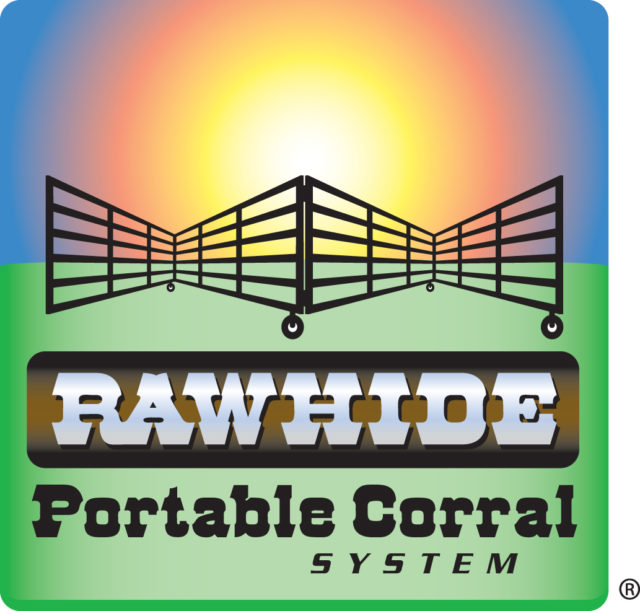Would it change what you choose to purchase?
With blockchain technology, an incorruptible and encrypted digital ledger that tracks and holds records in a decentralized location, this could be the future, available to consumers who are craving transparency and quality when it comes to the food they eat.
A tool for transparency
Blockchains allow independent parties to share information without a central administrator and is coded in such a way it is considered immutable or unable to be changed or hacked into. If a change must be made on a blockchain database, it’s recorded and cannot be hidden, bringing a level of trust and transparency not available in traditional databases.
“There is no other economy that has more fraud in it than the food industry,” says Wyoming state legislator Tyler Lindholm, who was heavily involved in the new blockchain laws recently passed in Wyoming.

“When we read ‘natural’ on packaging, the USDA has no mandate on natural, so the definitions are different and, most likely, it doesn’t match the consumer’s perspective. Blockchain helps bring the actual story of the ranch and its practices to life.”
The benefits of transparency don’t just stop with the consumer; those invested in the connection of blockchain and the beef industry think it will help drive value for cattle producers, increase the price per head and open the door for ranchers to work directly with the end buyer.
For instance, if a specialty store realizes a certain meat product has been selling out quickly, they could potentially scan a QR code on the package to learn more about the ranch and contact the rancher directly to purchase additional products, opening up a channel for communication that may not have otherwise been there.
Companies such as BeefChain, a technology company leading the blockchain connection in Wyoming, and Georgia-based Kelly Products, an agribusiness and software company, are working on separate pilot programs to test the concept on smaller herds before offering this revolutionary technology to a wider market.
A payoff for producers
BeefChain has tagged 1,900 cows into their system, spread throughout six ranches in Wyoming, and BeefChain CEO Rob Jennings says one of the problems facing many ranchers is the inability to command well-deserved premiums.
“Ranchers aren’t receiving the premium they could be, and the value is going elsewhere in the supply chain,” says Jennings. “In relation to Wyoming, everything gets transferred out of state, so it’s hard to get the premium when it comes to marketing our quality beef, raised in a low-stress, grass-fed environment. Blockchain is the opportunity to grab those data points and help show that story to consumers.”

Kelly Products CEO Keith Kelly says the difference between using blockchain and another verification system is the encrypted data that’s impossible to manipulate. Using an RFID tag, data specific to each cow can be “hashed” into the blockchain, providing a story that can be traced from beginning to end.
This would allow for transparency for the consumer and a way for beef producers to follow their cows once they change ownership.
Kelly Products is starting with a small group of their own company cattle to test out their new software, work out the kinks and show proof of concept when the animals go through a retail environment in their Farmview Market, a farmers’ market, specialty grocer and butcher shop.
Kelly predicts it will take a year before the concept is fully engaged in his local market, but he sees it starting to take off at specialty stores and high-end restaurants before becoming a mainstream demand from consumers.
“People today are demanding to know where their food comes from,” he says. “There are those who are buying industrial food, and they trust it’s good and safe, and there are those who want what they consider to be cleaner, better food with cleaner labels, and they are the ones who want to know the whole story. That’s the group that will pay attention to this.”
Verification adds value
Wyoming state Sen. Ogden Driskill, who also played a part in the blockchain laws, says ranchers will benefit from participating in the blockchain system, not just on a national level but in the international markets as well.
“We are so used to the USDA making sure the meat we eat is safe, but that is not the case overseas, and we are seeing a high demand for quality beef in Asia,” he says. “The better the verification, the better the price on the meat overseas.”
BeefChain is poised to become the first to have third-party verification from the USDA on a blockchain database, so for the cost of an RFID tag, experts expect a return of $100 per head.
“This isn’t a top-down mandate; this is a bottom-up effort at 7 to 10 dollars for a proprietary tag and a verification agent to be there to scan and approve the data point. The bigger issue is getting people on-boarded and into the program,” Jennings says. “For small- and medium-sized producers, if you are going to tag in for a certification, you could tag into a blockchain and have greater proof than the affidavit method."
 "Producers have been talking for years about traceability, but what they haven’t had is a ringleader, and blockchain is kind of like that ringleader to talk about provenance and branding and premium value.”
"Producers have been talking for years about traceability, but what they haven’t had is a ringleader, and blockchain is kind of like that ringleader to talk about provenance and branding and premium value.”
Jennings says BeefChain allows a granular approach to data for improved value up and down the supply chain.
“It brings a new value in the marketplace for the producer and rewards them for using sustainable methodologies,” he says. “For the guys who are doing grass-fed right, they are being cheated by others who aren’t actually doing it the same. Now you can look at the actual data points and make a choice.”
For Lindholm and Driskill, who both grew up and are active on their Wyoming family ranches, figuring out the best ways technology and the beef industry can work together has become a large part of their work as state senators and as ranchers.
Lindholm says ranchers should start paying attention to their current marketing efforts to prepare for the new wave of opportunity that comes along with blockchain.
“Ethically raised may sound scary, but it’s actually bragging about how you’ve been traditionally doing things which is something desirable and makes premium beef,” Lindholm says. “We just need to learn how to market it already as a superior product.” ![]()
PHOTO 1: Wyoming state Sen. Ogden Driskill tags cattle at his ranch near Devil’s Tower National Monument for the BeefChain pilot program. Photo courtesy of BeefChain.
PHOTO 2: Throughout 2019, Kelly Products will take 150 of their cows through the blockchain to retail process. Photo courtesy of Kelly Products.
PHOTO 3 & 4: Kelly Products opened Farmview Market, a retail store in Madison, Georgia, that has a large butcher shop, café, specialty grocery and farmers’ market. The animals are born and raised at the company’s farm, transported to a local slaughter facility and then further processed at Farmview’s butcher shop. Photo courtesy of Kelly Products.
Amy Schutte is a freelance writer based in southern Idaho.






